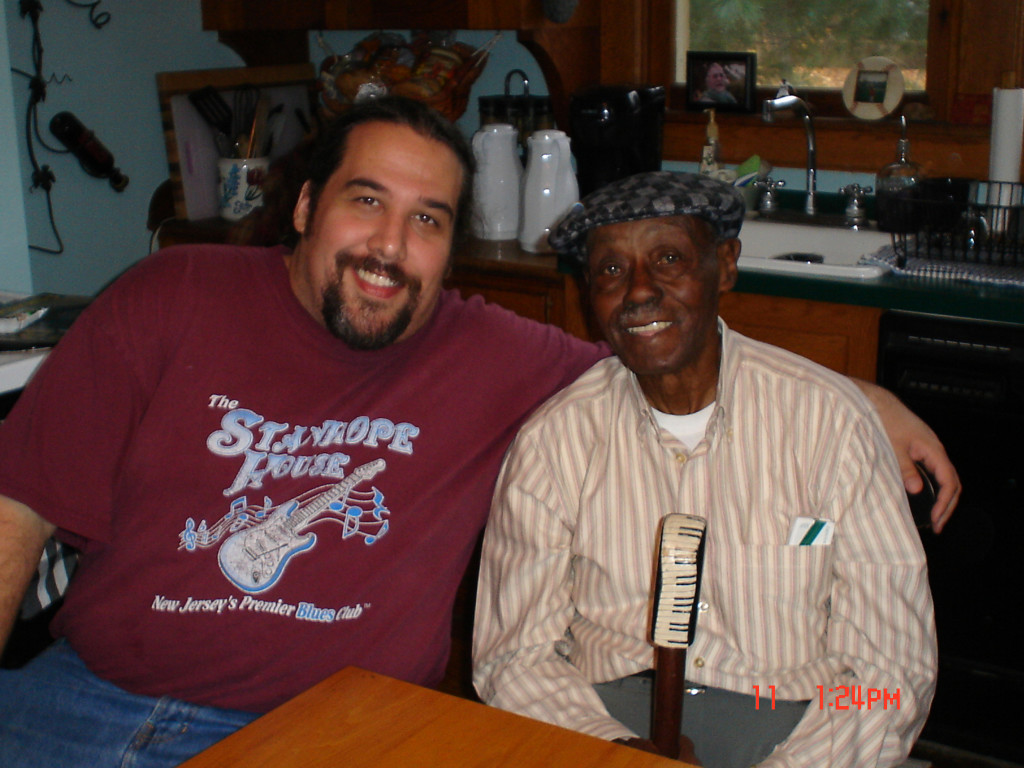
By Jim Hynes
On the eve of America’s birthday, Elmore debuts the first installment of the “Saving American Music” Series, wherein we talk to festival promoters, publicists, touring managers, radio promoters, producers, label owners and individuals with multiple roles, who have devoted their careers to doing just that– saving American music. Our first guest, Matt Angus, is an artist, producer, label owner and festival promoter. This year marks the twentieth anniversary of his brainchild and now the longest running independent music festival, The Black Potatoe Fest, held in Clinton, NJ this July 13-17th.
Elmore Magazine: How did you get the nickname “the accidental promoter”?
Matt Angus: It began in 1997 when I was touring and doing well with my own band, Angus. We decided to record an album in our hometown of Clinton. Aaron Hurwitz (a.k.a. Professor Louie) produced parts of the record, including a track that Garth Hudson did on accordion. Rick Danko was supposed to play on the record but was detained in Japan. Not long after that, I went to see Professor Louie and the Crowmatix in New York. Levon Helm was playing drums for the band, and asked if he could play with us for our CD release. I was stunned. I had just met him. So we put together a one day festival with six bands, simply called “Black Potatoe Presents.” As you know, I already had that name for my record label.
EM: So, that’s how Black Potatoe got started. How has the vision evolved?
MA: Well, the night before the one day fest, a major hurricane blew through Clinton and the town was without power and clean water as was the area for miles around. So, here we were – the only place around with power because we had a generator, as well as beer and cold drinks. Tickets were more expensive then ($28) than they are now ($25) for one day. In terms of the vision, as you know, I worked in production at A&M Records in L.A., but when I came back to New Jersey I wanted to do it my own way. Levon encouraged me, actually saying, “Matty, screw the major labels.” We decided we wanted to be an outlet for people to hear new independent artists. The fans liked it and asked us to keep doing the festival, which has now grown into a five day event. My job is to work for the Potatoe Heads – the fans.
EM: What does it take to keep the festival going for 20 years? It’s a small festival, and it would seem that a few downturns in any revenue piece– be it sponsors or attendance– could spell doom.
MA: My first reaction to that question is “a whole lot of stupidity.” If you laid out all the obstacles and details you’d be frightened about the risks and pressures. So it’s better to just be stupid, in a sense, so you are not aware of them. 2008 and 2011 found a lot of people in this business drastically scaling back. We did too, but knew how to get enough sponsors and generate enough ticket sales to break even, which is all we really need to do. During this period, artists’ managers were doing “festival pricing” in 2006, and by 2008 they were begging you to take their artists. This convinced me to work more on behalf of the artists, because these agents, unlike us, weren’t trying to sell music. They, together with major publicity firms often are self-interested, trying to control festivals. We go the other way. We try to find artists we think that our fans will be interested in, and so doing, I think we help the artists too.
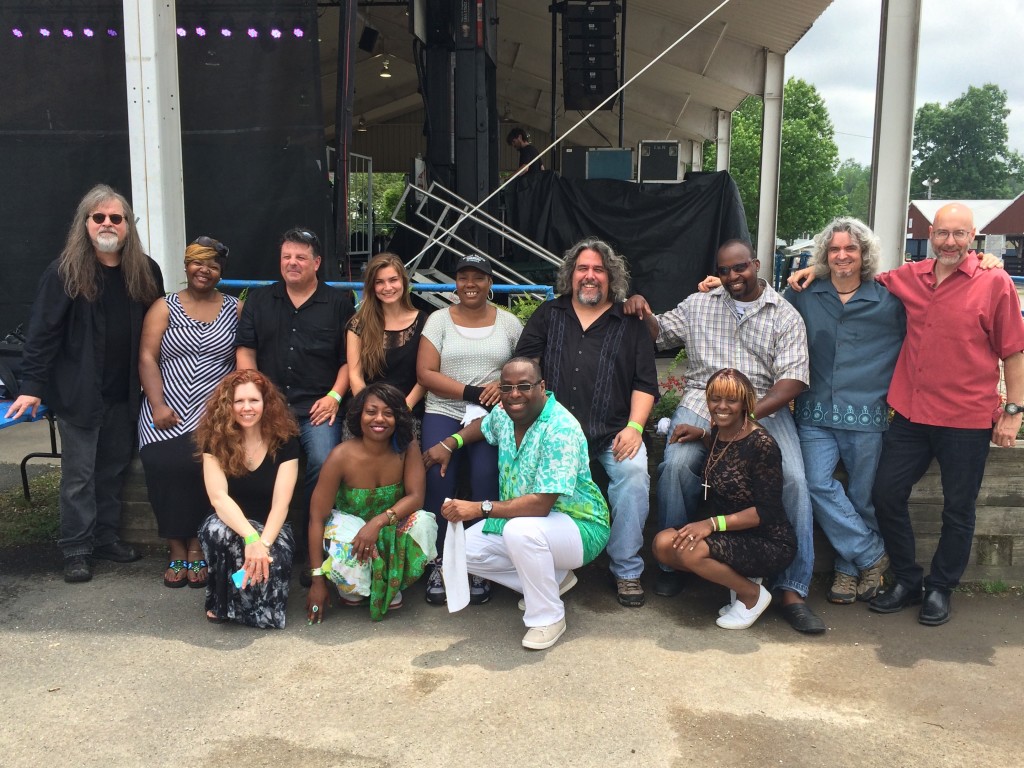
EM: What are the most time consuming aspects of putting the festival together?
MA: Seriously, the hardest part is politics. We are very lucky to have the support of Mayor Janice Kovach of Clinton. You couldn’t have a better supporter. We have great local merchants too, but when you think about, we’ve been here for 20 years. Think of the turnover in merchants, members of the Town Council and so on. This is a huge investment of time, especially earlier on. We don’t spend as much time on it now that we are a well-known event. That’s why some of your large festivals like Bonnaroo are held in the middle of nowhere. We have only three sponsors who have been with us the entire time, so you can understand that it is important to work that every year. Selecting the music is the fun part, but it is overwhelming now. We have 2000 artists bidding for 44 spots. The whole festival is clearly a year round job for me, but I am fortunate to have the support in Clinton and the continuity of key members of my staff. Grammy-winning engineer Tom Gordon, for example, has been with me since 2001.
EM: How do bands benefit from playing the festival?
MA: First of all, you need to know that many of the opening act bands in New Jersey essentially have to pay to play. The number of tickets they can sell often dictates whether they get to play or not. We pay every band. It’s not necessarily a lot, but we do pay them. If a band gets a spot in the festival it makes it a lot easier to get other gigs in the major Northeast markets. Grace Potter played here, as did Lake Street Dive. No, we’re not a launching pad, but I have to believe we help bands build momentum.
EM: What are the top 3 memorable performances over the past 20 years?
MA: Off the top of my head, Levon Helm in 1997. This was before the throat cancer. He did “The Weight” and a bunch of Band stuff and it was amazing. Carolyn Wonderland blew everyone away in 2003. And, not to toot my own horn, but in 2006 the Matt Angus Thing with Bernard Purdie on drums, the late Bernie Worrell on keys and members of Anthony Morgan’s Inspirational Choir of Harlem (Anthony Morgan, Lawrence Davis, Kenny Fritp) gave a pretty special performance. There are several artists that play regularly, like Ellis Paul, Willy Porter and Gregg Cagno. It’s hard to just mention a few.
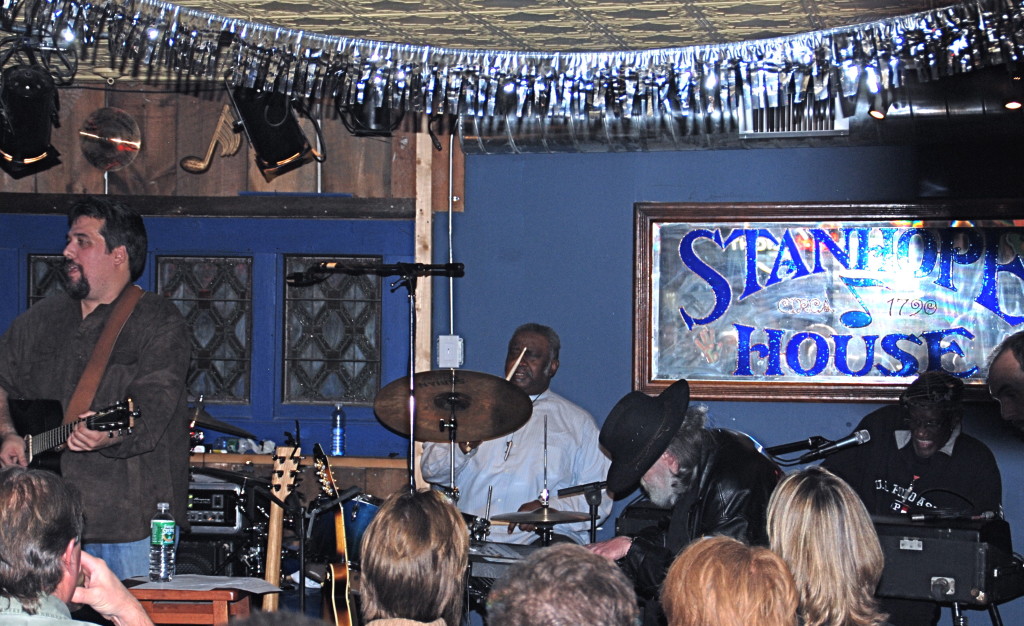
EM: Picking up on the Matt Angus Thing, over the years you’ve worked with gospel singers in some of these slots, and you’ve performed with them at the Crawfish Fest in NJ too. How did that get started?
MA: I booked the Harlem Gospel Choir to play the fest the year before I recorded my Political Pop album and brought in some of those singers to record with me. I think I sing okay, but when you sing with someone like Shemekia McClelland, she will make you believe in God.
EM: You’ve worked with Levon Helm, Pinetop Perkins and met others like Gregg Allman and Honeyboy Edwards. Can you talk about some of those experiences and what you’ve learned from them?
MA: You know, I have a degree in history and I love the history of musicians. Thinking of Pinetop, I realized this is the closest I’ll ever get to playing with Muddy Waters. It’s all about not how many notes you can play, but playing the right notes and getting the right feel. We recorded five songs of Honeyboy Edwards and he talked to me for 45 minutes afterwards about the last days of playing with Robert Johnson. When I met Gregg Allman, I didn’t talk to him about music but about the Allman Brothers helping get Jimmy Carter elected President. He talked to me about being invited to the Governor’s Mansion. It’s great to think that music can be that powerful. It can get a President elected. It’s pretty special to have met these guys. I have about a dozen unreleased tracks playing with Levon Helm. I have enough material for an album of Pinetop Perkins.
EM: Prior to the festival, you had a studio, a record label and produced records. Rick Danko comes to mind, and I know there were others too. Can you talk a bit about that time?
MA: We had a small performing space that held 50 people in Clinton. We recorded Rick Danko, Bucky Pizzarelli and Chris Barron of the Spin Doctors there to name a few. The first act we did was Buddy Miles Express, and we did several sessions with Corey Harris. It’s funny to think of how lame the technology was then; I was controlling the volume from the back of the room with a remote control just like you do for a TV. Thinking back to the Spin Doctors, my band Angus was a popular act at The Wetlands. We opened for them several times and bands like Phish, Dave Mathews and others came out of there too.
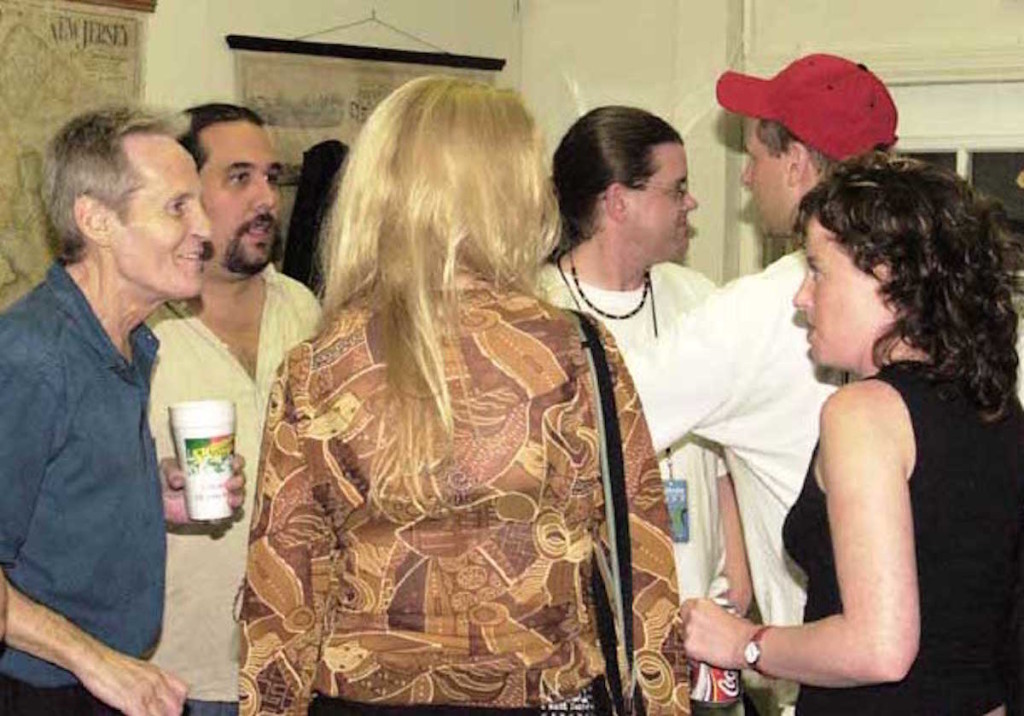
EM: You also made a couple of records, most notably Political Pop, and then your solo album in 2006. Tell us about those efforts.
MA: If you want to see how quickly your recording career can end, write a song about George Bush. I wrote “President’s Son” in 2003, and this was before The Dixie Chicks received all that flak for opposing Bush. I had this concept– Political Pop- a term I own, basically posing the question whether you can be political and popular at the same time. We had a hit with our single, a cover of Johnny Cash’s “Folsom Prison Blues,” which was riding high on Triple A Radio, the Americana chart and reached #1 on the Roots Music Chart. As soon as “President’s Son” got heard, I disappeared. Ironically, the Americana Music chart was one of the first to drop me. And yet for years now, they give out a Freedom of Speech Award. Political Pop came out in 2004, and I still feel it is the best record I’ve made. I am also proud of Matt Angus in 2006. Larry Campbell, Tony Garnier, John Ginty and great singers like Shemekia McClelland played on the record, which received favorable reviews although some were reluctant to review it after the negative reaction to Political Pop.
EM: You’ve made a movie too?
MA: The movie has never been released. We just wanted to document our footage working with Levon, Honeyboy, Pinetop and others. Justin Holt interviewed Jimmy Vivino, Bernard Purdie, Ellis Paul, John Ginty and Sarah Borges. The movie is called Demand Your Independents and is available for purchase at www.blackpotatoe.com. We have not had it at any film festivals. Consider SXSW for example – there are 11,000 applications for 21 spots. But I think movies and visuals are the future for music. YouTube hits are much more lucrative than Spotify. That’s why you see so many artists going that way.
EM: Last year you moved to Arizona. I’m sure you’re involved in the music scene in Phoenix. What is that scene like? What have you been up to out there?
MA: My wife received a job offer in Phoenix that she could not turn down. It’s proven to be a good move for my family, as we have three young children and we now live near my mother and sister too. My friends from my college days at USC are closer. I like the weather and now know more than ever that I don’t like cold weather. Unlike many people here, though, I’m only 47. I am not retiring. The music scene here is different probably due to the number of retirees. There are great people here. I’m fortunate to have landed a stage manager gig at MIM – Musical Instrument Museum. They have the best sounding 300 seat theater I’ve heard, and I’ve been all over the country. The staff is incredible. Lowell Pickett does the booking and Patrick Murphy heads up an excellent production team.
EM: What is your vision for Black Potatoe going forward?
MA: This is the last year you’ll see this festival in its current format. Something has to change. We have 2000 applications for 44 spots. I think next year we will have a one day event in Reno, NV, a one day event here in Phoenix the day before SXSW and a different version of what we’ve been doing in New Jersey. In the next year or so, we hope to deliver a Matt Angus Thing record featuring some members of Anthony Morgan’s Inspirational Choir of Harlem.
For more information on Black Potatoe Fest and other Matt Angus projects, visit www.blackpotatoe.com





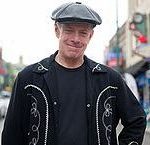

Be the first to comment!